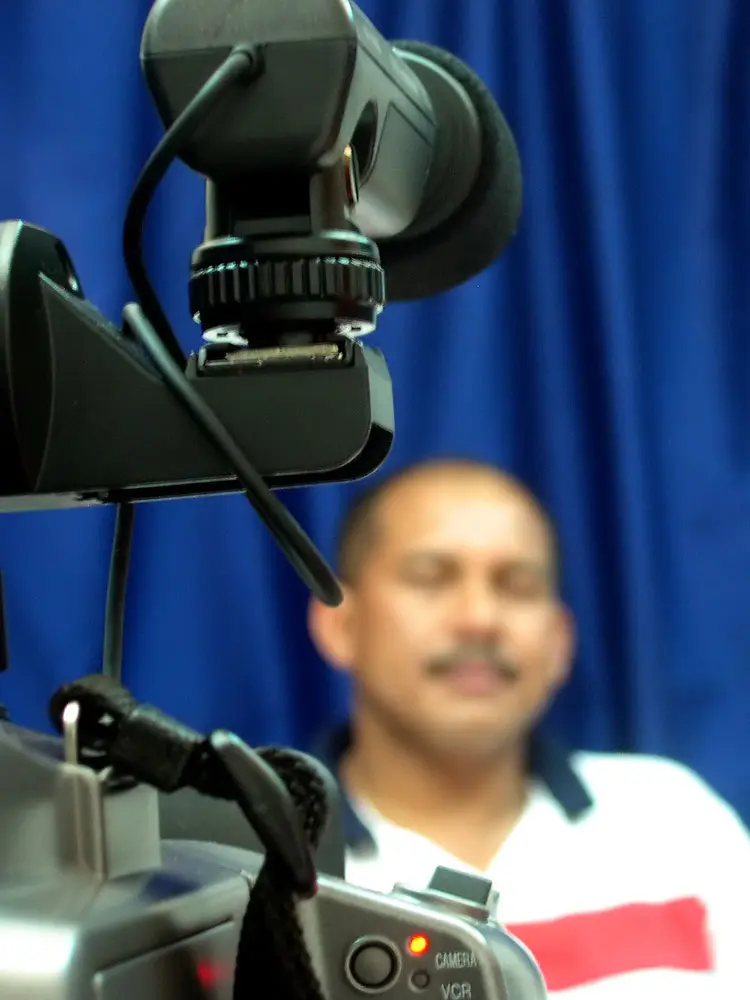The Importance of Lawful Video Clip Depositions in Modern Legal Solutions: What You Ought to Know
Legal video clip depositions have actually ended up being vital in today's legal landscape. They provide a multidimensional sight of witness statements that traditional records just can not match. By recording both non-verbal and verbal interaction, these depositions boost the general understanding of a witness's reliability. The effectiveness of video clip depositions hinges on numerous aspects, including conformity with lawful requirements and best techniques. Exploring these components exposes their real relevance in modern legal services
What Are Legal Video Clip Depositions?
Legal video depositions offer as an essential device in the litigation process. They entail recording witness statements in a video clip format, catching both spoken and non-verbal interaction. This approach allows attorneys to record the demeanor, expressions, and reactions of witnesses, supplying a richer context for the testament. Usually performed in a regulated environment, these depositions are led by attorneys who ask inquiries while a stenotype reporter records the discussion. The resulting video can be essential for test prep work, as it makes it possible for lawyers to assess the integrity of witnesses and improve their strategies. Furthermore, legal video depositions can be used in different lawful contexts, varying from civil disagreements to criminal instances. The aesthetic and acoustic elements of video depositions enhance the discussion of proof, making it an essential element in the modern lawful landscape. On the whole, they add substantially to the performance and performance of lawful procedures.

Advantages of Video Depositions Over Conventional Techniques
Video depositions supply numerous benefits contrasted to traditional methods of taking witness testaments. One substantial advantage is the capacity to capture both audio and visual aspects, supplying an extra comprehensive record of the witness's statements. This dual style improves clearness and permits attorneys to reference certain nuances throughout test preparation. Furthermore, video clip depositions assist in remote involvement, making it easier for witnesses that might be not available for in-person looks because of geographical restrictions or health issues.Moreover, video clip depositions can expedite the overall deposition procedure, minimizing the time and prices connected with travel and logistics. They additionally enhance availability, as tape-recorded depositions can be conveniently shared among legal teams and referenced at any kind of time. This ease adds to much better situation management and prep work. In general, video clip depositions represent a modern, effective technique to gathering witness testaments, straightening with the progressing demands of the legal occupation.
The Role of Body Movement and Tone in Testimonies

In lawful video clip depositions, body movement and tone play essential roles in communicating a witness's reputation and credibility. Nonverbal hints can give insights right into a witness's emotion, influencing exactly how their testimony is perceived. Understanding the effect of these aspects is crucial for jurors and attorneys alike when assessing the reliability of a statement.
Nonverbal Interaction Insights
While spoken interaction is usually emphasized in legal statements, nonverbal hints such as body movement and tone play an important function in sharing integrity and feeling. Viewers of depositions might note that a witness's position, motions, and faces can significantly influence understandings of dependability. Consistent eye contact might indicate self-confidence, while avoiding gaze might recommend dishonesty or pain. Likewise, the intonation-- its rate, pitch, and quantity-- can present feelings of sincerity or unpredictability. Legal professionals have to be in harmony with these nonverbal signals, as they commonly supply crucial context that complements spoken words. Recognizing these nuances can improve the effectiveness of depositions and affect the outcome of legal proceedings.
Psychological Tone Influence
The emotional tone communicated during lawful statements greatly impacts how a witness is regarded. Body language, singing inflections, and facial expressions play essential duties in forming the narrative of a testament. A witness displaying confidence via steady eye call and a calm tone can impart a sense of integrity and involvement. Conversely, indications of anxiousness, such as fidgeting or an unstable voice, might lead to skepticism regarding their account. The subtleties of emotional expression can affect the analysis of realities, making it vital for legal experts to recognize these hints. In video clip depositions, the auditory and aesthetic parts integrate, highlighting the significance of emotional tone in sharing sincerity and truthfulness within the lawful process.
Integrity and Dependability
A crucial consider establishing integrity and trustworthiness during testaments lies in the witness's body language and intonation. Observers commonly rely on non-verbal signs-- such as eye contact, pose, and gestures-- to examine a witness's sincerity. For instance, a witness that maintains eye call and presents open body language might be regarded as even more trustworthy and straightforward than one who avoids eye contact or appears shut off. Furthermore, tone of voice plays a crucial role; a steady, calm tone can reinforce the reliability of the testament, while variations in pitch or quantity might increase questions. Eventually, the combination of body language and singing tone greatly influences exactly how a witness's statements are gotten and translated in a legal context.
Best Practices for Performing Video Clip Depositions
Carrying out video clip depositions requires cautious planning and execution to assure a clear and reliable presentation of statement. It is important to select a quiet, well-lit place to lessen interruptions and protected optimum video top quality. The devices needs to be examined beforehand, consisting of cams, microphones, and lighting, to stay clear of technical problems during the deposition.Next, parties involved should assess the format and treatments beforehand, making certain that everyone comprehends their functions. The deponent must be informed on the procedure, including just how to react clearly and concisely.Additionally, keeping a professional attitude throughout the session is necessary. This consists of refraining from speaking over each other and validating that all questions are guided properly. It is vital to videotape the deposition in a format that allows for simple playback and testimonial, protecting the stability of the statement for future use.
Legal Considerations and Compliance Issues
Exactly how do legal factors to consider and compliance issues impact the efficiency of video depositions? Lawyers need to browse a complex landscape of guidelines, guaranteeing that video clip depositions stick to administrative regulations and criteria. Conformity with regulations concerning privacy, authorization, and recording approaches is essential. As an example, getting specific approval from all celebrations included is needed to prevent legal repercussions.Additionally, the admissibility of video proof in court can depend upon conformity with step-by-step requirements. Making sure that the equipment made use of satisfies technological criteria is likewise essential, as low quality can weaken the deposition's reliability.Moreover, attorneys need to know any kind of certain state laws that govern video clip depositions, as these can vary substantially. Failure to address these factors to consider can not only threaten the integrity of the deposition yet likewise impact the general instance method, ultimately impacting the customer's legal end results.
How Video Depositions Influence Jury Understanding
While video clip depositions can act as effective tools in legal process, Bonuses their influence on court perception is considerable. The auditory and aesthetic elements of video recordings supply jurors with an extra comprehensive understanding of witness temperament, credibility, and emotional feedbacks. This multimedia method can improve the jurors' capacity to assess the dependability of testament contrasted to standard text-based transcripts.Moreover, video clip depositions enable jurors to observe body language, intonation, and face expressions, all of which can affect their analysis of the witness's declarations. The visibility of a witness on display can humanize them, fostering empathy and connection, which may sway jurors' viewpoints. a fantastic read Conversely, a witness who appears unreliable or evasive on video might cause unfavorable assumptions that affect a court's choice. Inevitably, the vibrant nature of video clip depositions plays a crucial function in forming how jurors interpret proof and reach their judgments.
The Future of Video Clip Depositions in Legal Method
As developments in innovation continue to reshape the lawful landscape, the future of video depositions is poised for significant evolution. Innovations such as expert system, online truth, and enhanced video clip conferencing devices are anticipated to improve the deposition process and boost access. Attorneys might make use of AI-driven analytics to evaluate witness trustworthiness and situation strength extra effectively.Moreover, the combination of virtual fact might allow courts to experience immersive simulations of depositions, offering deeper context and understanding. Furthermore, the fad toward remote depositions is most likely to continue, offering better flexibility for lawyers and clients alike.As remote work comes to be increasingly stabilized, video depositions will likely come to be conventional technique, minimizing prices and time restraints connected with traditional techniques. On the whole, these technological innovations promise to improve the efficiency, efficiency, and accessibility of video clip depositions in lawful practice, eventually changing how attorneys prepare for trial.
Often Asked Questions
Just How Much Do Legal Video Depositions Commonly Price?

Can Video Clip Depositions Be Made Use Of in Any Type of Instance?
Video clip depositions can be used in various kinds of instances, including civil, criminal, and family law. Their adaptability enables lawyers to present witness testaments successfully, adapting to the specific demands of different lawful circumstances.
What Equipment Is Required for a Video Clip Deposition?
To conduct a video deposition, important tools includes a top quality electronic camera, microphone, illumination, and a reputable recording device. Furthermore, a computer with modifying software application might be necessary for post-production and formatting the final video clip.
How much time Does a Typical Video Clip Deposition Last?
A typical video clip deposition lasts in between two to four hours, relying on the complexity of the situation and the variety of questions presented. Extended sessions may take place, however breaks are usually integrated for individual comfort.

Are Video Depositions Admissible in Court?
Video depositions are typically acceptable in court, supplied they follow legal standards and guidelines of evidence. Their use enhances clarity and maintains witness testament, assisting in the judicial procedure during trials and hearings. Legal video depositions have come to be essential in today's lawful landscape. In addition, legal video depositions can be utilized in numerous lawful contexts, ranging from civil disputes to criminal situations. Furthermore, video depositions facilitate remote engagement, making it less complicated for witnesses that may be inaccessible for in-person looks due to geographical restrictions or health issues.Moreover, video clip depositions can speed up the general deposition process, reducing the time hop over to these guys and prices connected with traveling and logistics. Making sure that the equipment made use of satisfies technical criteria is likewise important, as poor top quality can weaken the deposition's reliability.Moreover, lawyers need to be aware of any type of particular state regulations that govern video clip depositions, as these can vary substantially. Furthermore, the fad towards remote depositions is likely to linger, providing better versatility for lawyers and clients alike.As remote work ends up being increasingly normalized, video depositions will likely become typical method, lowering costs and time restrictions linked with traditional techniques.